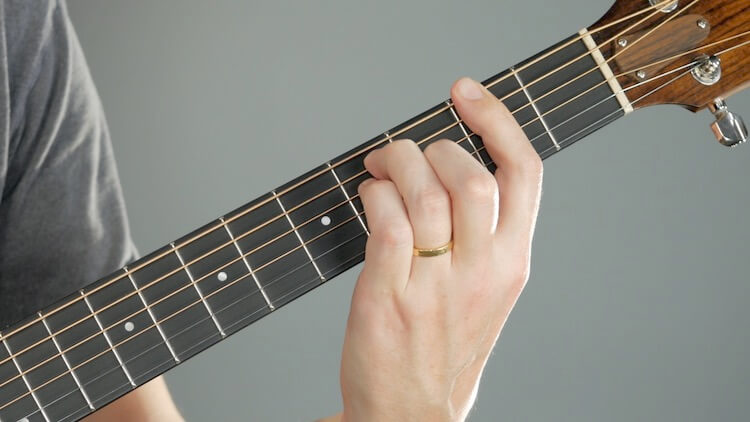
The F# chord, pronounced “F sharp” or “F sharp major chord”, is most commonly played as a barre chord, with the first finger stretching across all six strings.
On this page, you’ll learn more difficult, and most commonly taught version, as well as an easier version of F sharp more suited to beginning players.
The most common version of the F# chord is, essentially, the same shape as an E major chord, using your first finger to move that chord up by two frets.
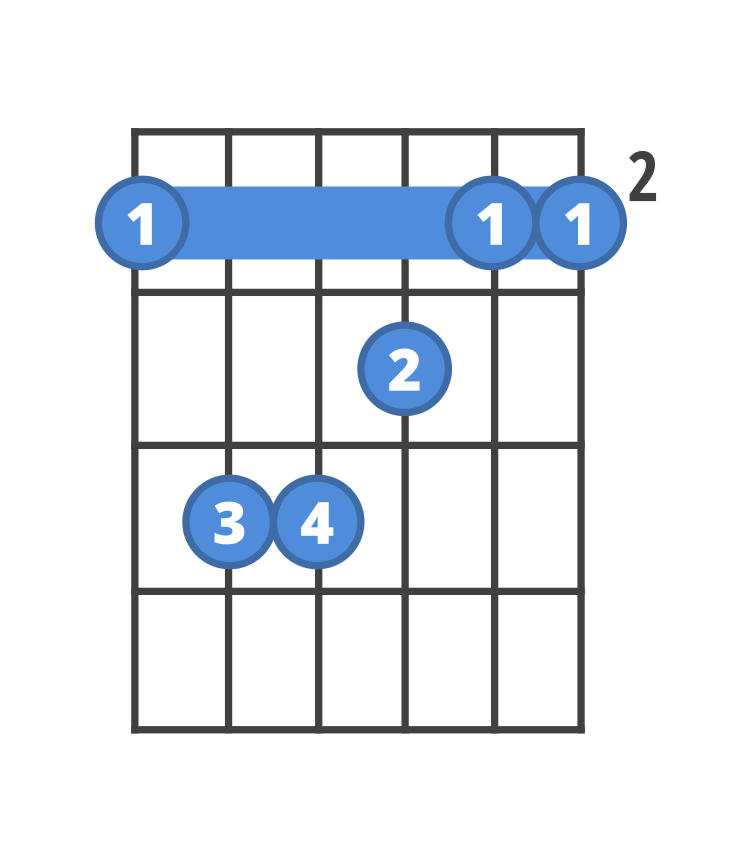
Start by making a barre across the all six strings by placing the edge of your first finger flat against the strings, just behind the second fret.
Then, take your other three fingers and place them in front of them, in that same E major shape in front of them.
You’re probably used to playing this shape with your first three fingers, so it might be an adjustment using your second, third, and fourth fingers instead.
Strum all six strings.
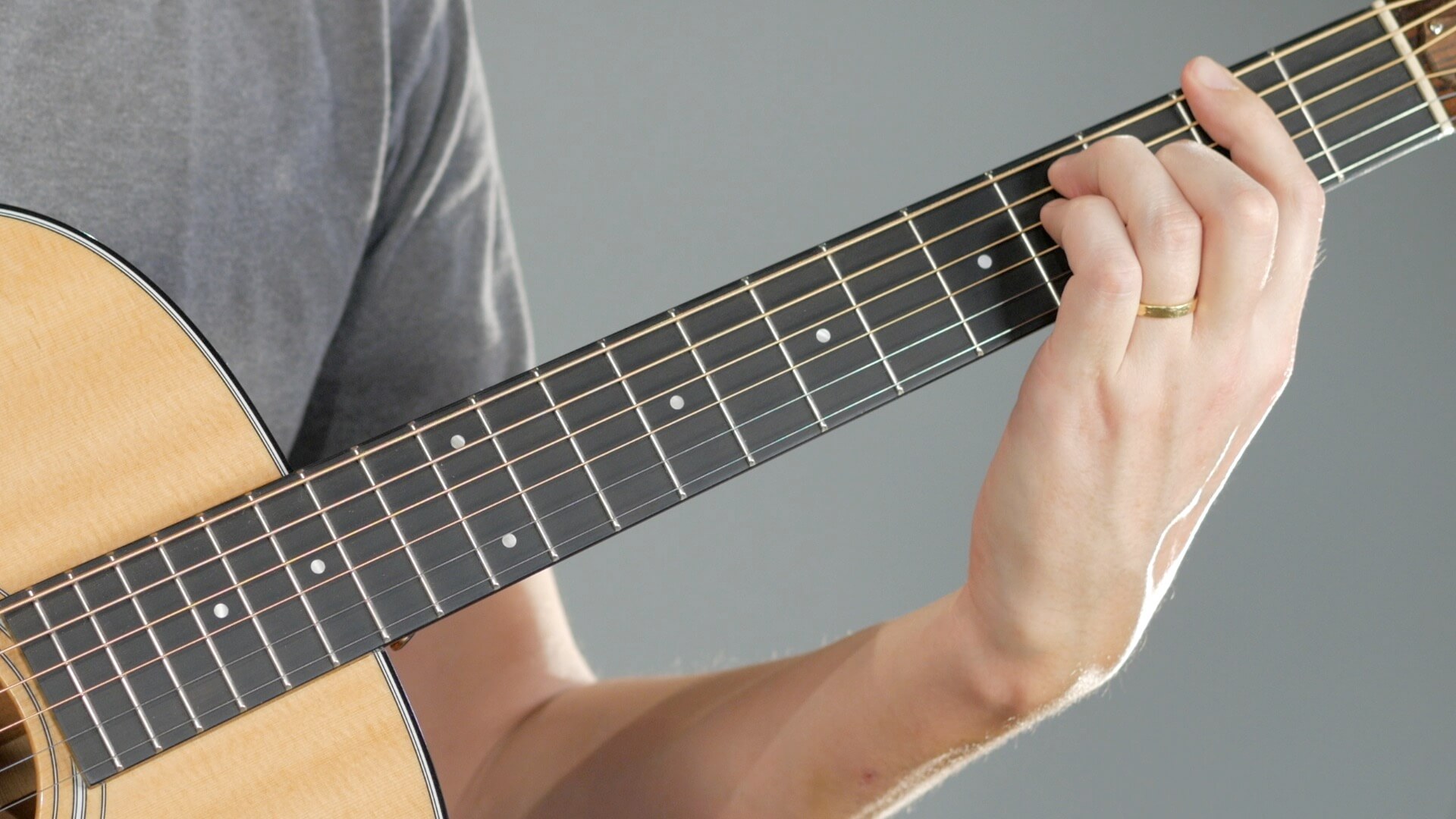
If you’re just getting started, it might be difficult to play this chord without the strings buzzing.
Try to focus your first finger’s pressure on the thickest string, and the thinnest two strings, curving your finger a little in the middle.
Remember: barre chords are usually versions of chords you already know. Think about the E major chord as you play this one. It will help you remember where to put your fingers.
There is more than one way to play F# major. If you’re having trouble with this version, consider starting with the easier, smaller barre below.
Whether you’re just beginning to play, or you’ve played for a while, there is another easy to play, perfectly good version of the F sharp chord that is a little easier on the fingers.
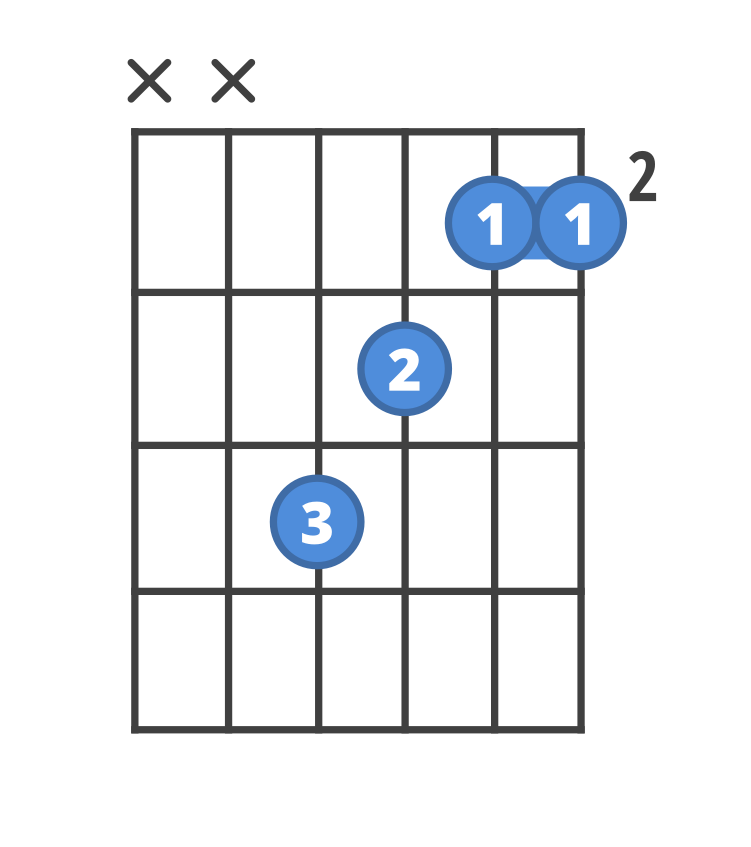
This version still has a barre, but a very small one, just across the first two strings. This takes much less hand strength and pressure to get a nice clean sound.
The key, and the first step, is to make a small barre across the thinnest two strings at the second fret:
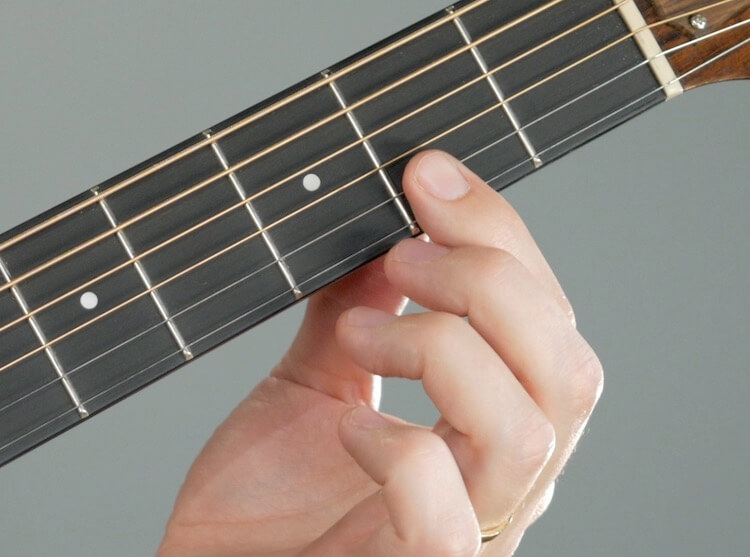
These two strings should fit in the pad of your first finger, and won’t be much more difficult to push down than the single strings you’re used to.
Next, stretch with your second and third fingers, on the third and fourth frets:
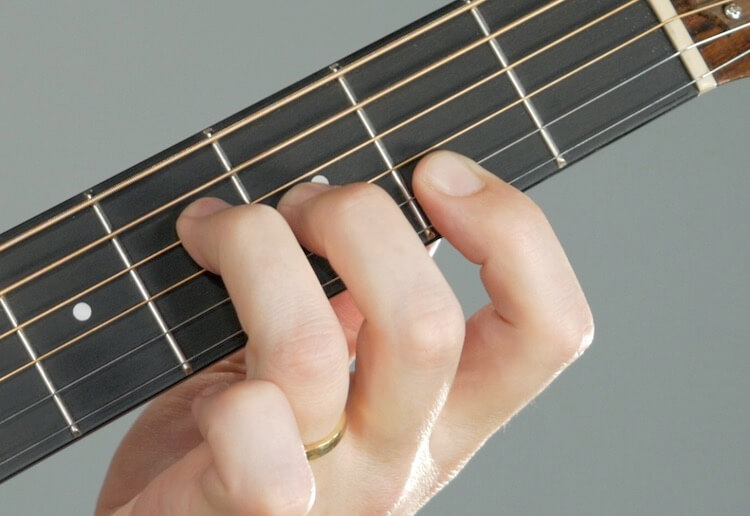
Press down firmly with the fingers on your left hand, then strum only the thinnest four strings.
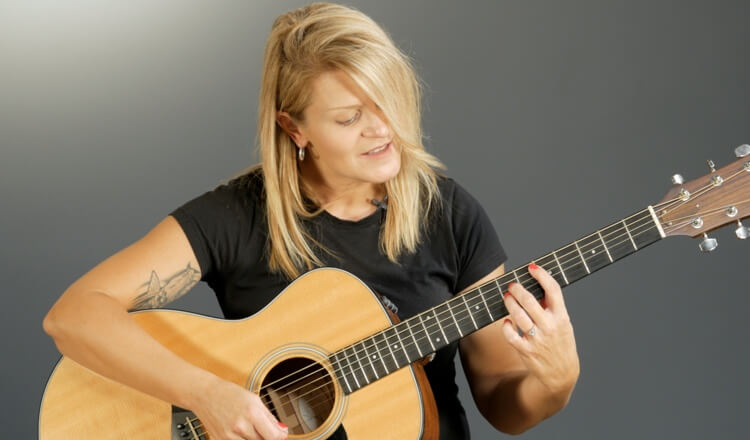
Do barre chords scare you? They don’t have to.
We have an excellent video series by Anna Freitas that will demystify Barre Chords once and for all.
You’ll learn to play the most important barre chord shapes, with tips for finding your way up and down the fretboard, changing chords, and getting rid of that awful fret buzz that plagues beginning players.
Here are some direct links to ChordBank’s practice drills and games for beginners learning the F# chord.
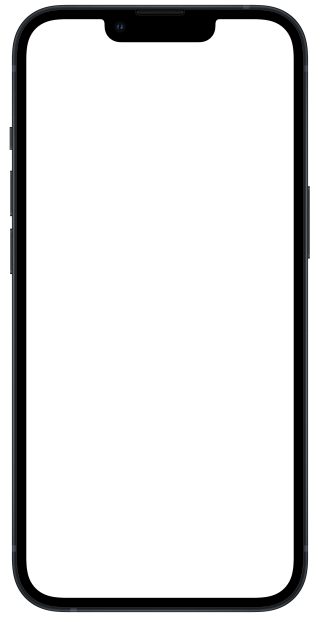
These Smart Flashcards will listen as you play, flipping automatically and helping you commit the F# chord to muscle memory and move forward as a guitar player.
To start feeling comfortable with the F# major barre chord, try changing between that chord and the E major chord in root position.
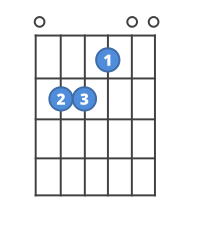
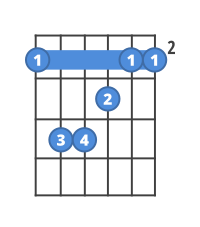
This will help your brain internalize the relationship between the barred F# chord, and the E major open shape it’s based on.
A good way to start feeling comfortable with barre chords is to focus on similar shapes.

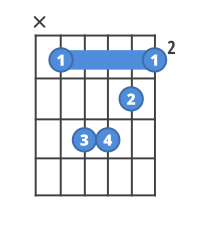
The B minor chord takes the same shape as the F# major chord, and shifts it down one set of strings. Practice changing back and forth. Once you’ve got those down, you’re ready to start moving those shapes around.
Start exporing more chords that are commonly used alongside F#: B major, C sharp minor, and E


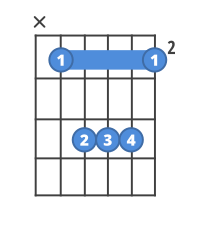
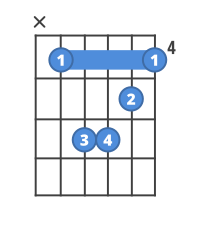
As you practice, you might start to hear some “songs” in the changes as you go. This is great!
Take a break and try to work out what you’re hearing! Remember to take time to just play as you’re learning. It’s called playing guitar, after all.
You can use ChordBank to practice chords, while playing silly games that use the sounds your guitar makes instead of a joystick.


Try playing ChordPOP! or Blast-o-chords while taking your fingers on and off the strings. ChordBank will listen to your iPhone’s microphone, and fire darts, blow up falling rocks as you play.